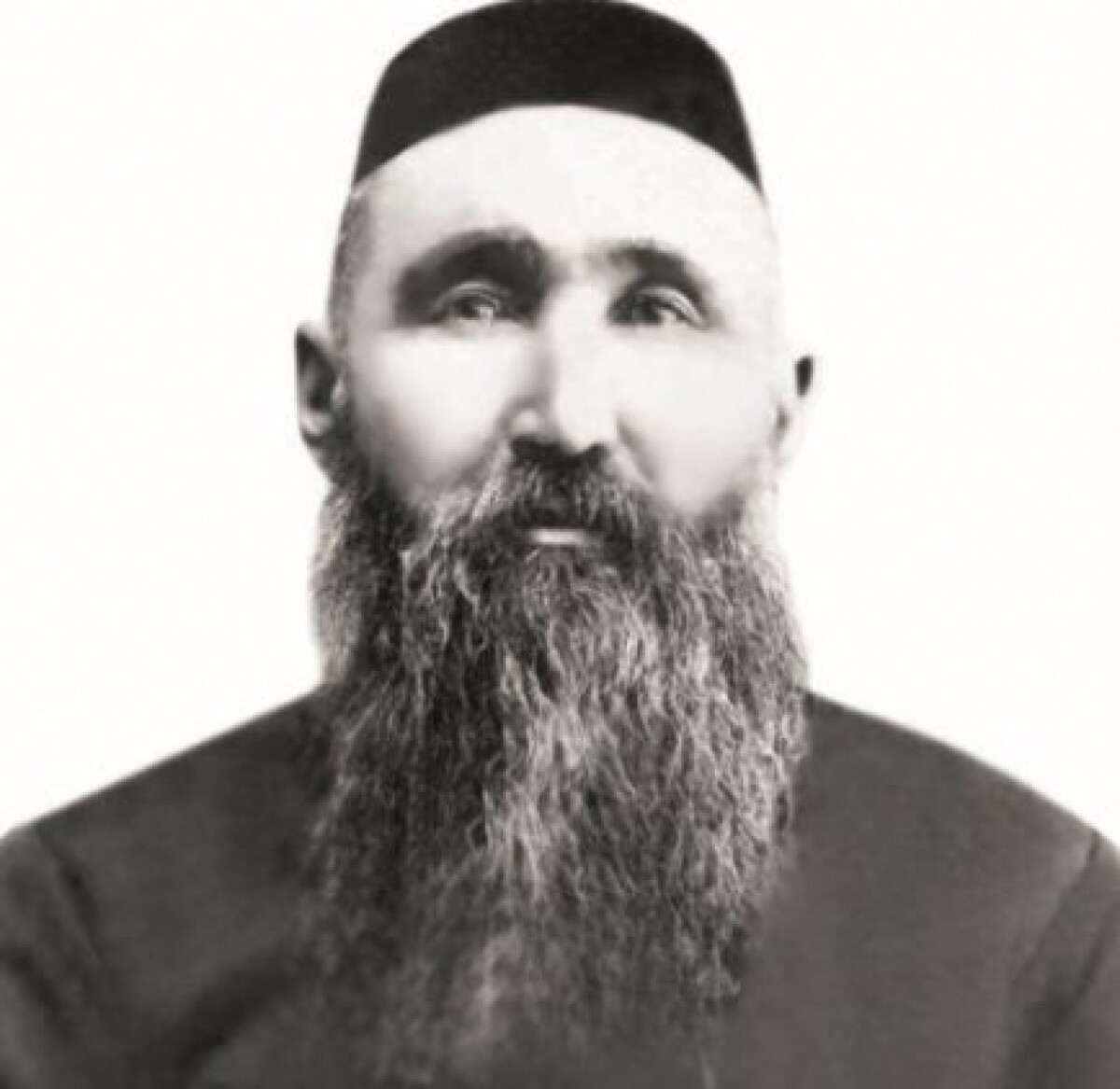Kudaiberdiyev Shakarim
Shakarim Kudaiberdiev - philosopher and thinker, scholar and poet - was born in the foothills of the Shyngystau in 1858 in Kenbulak, Chingiz district of Semipalatinsk. Today it is the Abay district of the East Kazakhstan region.
Shakarim was born in the Tobykty family, headed by Kunanbai, father of the great Kazakh poet and enlightener Abay. Father of Shakarim Kudaiberdy was born from Kunke, senior wife of Kunanbai. Shakarim and Abay were cousins. Shakarim lost his father when he was 7 years old and he was raised by his grandfather Kunanbay. The grandfather loved his grandson very much. Shakarim had grown up in rich pastures. The talented teenager was a favorite of Abay and on his advice Shakarim started his first experiments with poetry.
Poetry captured all essence of Shakarim and his works reflected the views of nature, peace, religion and other social phenomena. In the libraries of Istanbul and Mecca Shakarim studied the legacy of the great scientists and philosophers.
Shakarim knew very well the works of the Russian and foreign poets and writers and absorbed the spirit of the folk poetry from childhood. He loved very much works by Lev Tolstoi, Alexander Pushkin and Byron. He studied the works of scientists and philosophers from Democritus to Newton.
In the “Three Truths” work, which Shakarim had been creating for 30 years, he enters into an argument with Darwin and Rousseau and gets delighted by Archimedes and Plato. This book became a priceless heirloom, which represents the pinnacle of philosophical thought in Kazakhstan in the 19th and the early 20th centuries. Shakarim introduced the concept of “Science of conscience”. A magnificent connoisseur of Abay’s creative life, the successor of his traditions, he was deeply imbued with his conceptual ideas, developing them, enriching the vocabulary of philosophical category of the “science of conscience”. In all his works the problem of conscience was becoming the main theme.
The knowledge of the Arabic, Persian, and Turkish languages opened him the world of classical oriental poetry by Ferdowsi, Nizami, Fuzuli, Hafez. The pinnacle of the translation creativity of Shakarim was the “Leili and Majnun” poem, written explanation of the eastern parables. The poem went beyond the scope of the translated works. Scientists, researchers and professionals believe that it is the original and independent work. The story was adapted for the Kazakh reader. The lyrical narrative was interwoven with the Kazakh ballad in terms of its lyrical rhythm. A beautiful, melodic language, apt epithets, metaphors, a fascinating storyline made this poem a masterpiece of lyric poetry with an epic scale.
By autumn of 1931 the campaign of the Soviet government to confiscate property of prosperous farmers had come to an end. The collectivisation of agriculture in the Semipalatinsk region, and indeed everywhere, turned into cattle plague and famine. By this time Shakarim, renouncing the world, became increasingly reclusive and spent most of his time in his winter quarters. The new government had eliminated the educated, respectable people who could be leaders of the steppe. Having exterminated the most prominent, influential people and the elders, the new Soviet regime also destroyed the most enlightened, educated members of the nation, those who are popularly called “the salt of the earth”.
Shakarim was a versatile and educated person and knew several languages. In Semipalatinsk, he engaged in music, played the violin, accordion, took lessons in drawing, kept race horses and hunted with eagles. He was barely 20 years old when he was nominated for a vote as a candidate and was elected to the county governors. All sorts of litigations had become a school of life for him.
Numerous complaints revealed to him the injustice of the world. Neither his mind, nor heart could accept the colonial policy of the tsarist government. According to historians Shakarim was at the center of social and political events that are closely related to the activities of Alikhan Bukeykhanov
There is information about the invitation of Shakarim to the Second all-Kazakh Congress, held on December 5-13, 1917 in Orenburg. At the National Congress the Kazakh intelligentsia had reached the decision to establish the Alashorda government. Shakarim Kudaiberdiyev was one of the delegates from the Semipalatinsk region. The leader of the Alashorda Alikhan Bukeykhanov signed over 28 invitations to the most influential people of all regions and Shakarim was among them.
More than a century has passed before people started talking about Shakarim openly. On April 3, 1995 the Prosecutor-General’s Office of Kazakhstan decided to consider Shakarim Kudayberdiyev rehabilitated and he became subject to the Law of the Republic of Kazakhstan governing the Rehabilitation of Victims of political repressions effective from April 14, 1993.
The son of Shakarim, Akhat remembers that his father was handsome, well-built, tall and with delicate features. His expressive eyes always radiated goodness and light. Only one photo of Shakarim survived, the photo that depicts a 50-year old poet with a deep sorrow and a reserved passion of a person in his eyes, who was never defeated by time.
Share:









